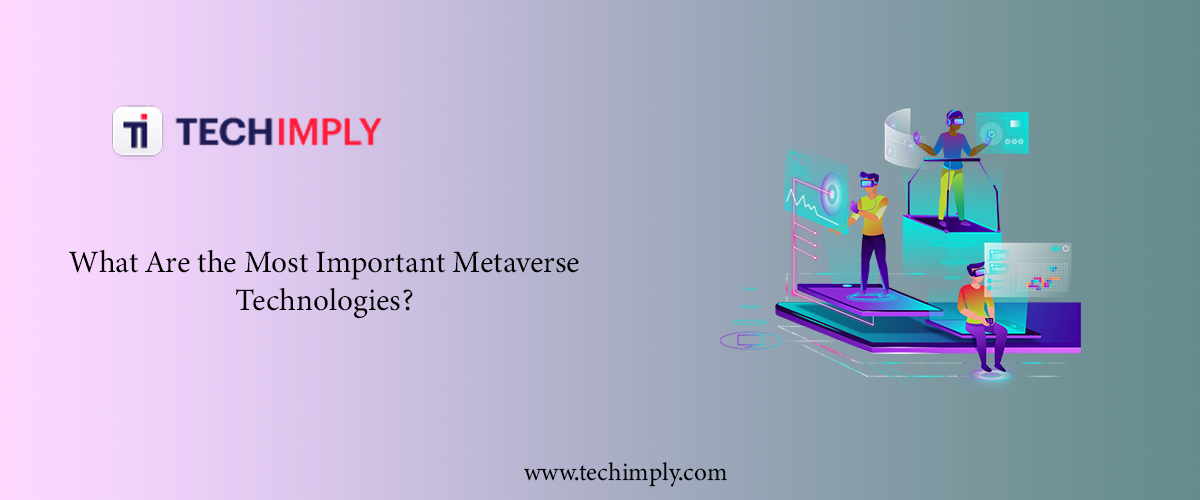We all had the fantasy of being a part of the gaming world, seeing ourselves as the game or someone who looks like us in the virtual world. The Metaverse is a dream come actual future of the virtual world. Apart from gaming, one can go shopping, buy properties and rental properties, and shop for exclusive items of real-world brands. Many international brands are available on the Metaverse.
Certain metaverse features have been incorporated into the ecosystems of some video games and work socializing programs.
Decentraland and The Sandbox, two cryptocurrency initiatives, launched their digital worlds. The metaverse is the future virtual world. Multiple venture companies and global brands are working to make it an ultimate virtual platform for maximum users. Facebook, also called Meta, is developing a better virtual space for its users.
Introduction
In 1992, Neal Stephenson proposed the concept of a metaverse. His fiction novel Snow Crash
visualize an online universe where people may explore and escape the real world using their digital avatars. Big technological companies have begun developing versions of a futuristic metaverse decades later. What is the metaverse, and how are major corporations tackling it from a technical standpoint?
The large ventures are giving their best to make the Metaverse platform more immersive and advanced. The Metaverse is soon going to be the talk of the town, just like the blockchain which most businesses are joining, just like Bitcoin or more such technologies which are doing great in the marketplace and gained excellent market value.
Let's look at these technologies that help to augment the Metaverse in this context.
Recent Developments in the Metaverse
- To determine how different technologies promote the growth of the latest metaverse news, you must take note of some unique tendencies in the area.
- The most prominent social media platform Facebook changed its name and focused on the Metaverse and kept the ane Meta in the year 2021 and invested about $10 billion in the Reality Labs.
- To collaborate on work for the users, Microsoft announced to launch of the Microsoft Mesh in the year 2021 in November.
- Microsoft Mesh brought Microsoft Teams and other Microsoft applications together in a single digital platform for all users.
- NVidia, another significant player, unveiled the NVidia Omniverse, an open platform for integrating 3D areas into shared universes. The NVidia Omniverse is a shared platform that allows creators, engineers, and designers to collaborate virtually.
- Most importantly, the increased interest in critical technologies for metaverse development is fueled by metaverse projections. According to Bloomberg, the worldwide metaverse market will reach $800 billion in 2022.
- The current trends in the metaverse sphere demonstrate a vibrant ecosystem with many reputable names supporting it. As a result, one can ask about the metaverse's technological underpinning.
Top Technologies Powering the Metaverse
- Cryptography and Blockchain
The Metaverse's development and progress are dependent on blockchain technology. Enterprises can use blockchain to create decentralized and transparent systems that enable digital proof of ownership, collectability, value transfer, and interoperability.
Furthermore, cryptocurrencies serve as a medium of trade for users to transfer value while discovering and interacting in the virtual world. On the Decentraland, any gamers will need the platform's digital currency MANA to purchase a property like the land of Decentraland or other accessories.
Contributors to the metaverse can expect cryptocurrency compensation, akin to blockchain miners. This emerging trend, highlighted in Metaverse news, points to innovative developments in the fusion of virtual reality and blockchain, shaping the future of decentralized digital spaces.
-
Reconstruction in 3D
3-D technology is not new, but it has evolved through time to become more powerful. The importance of 3-D reconstruction has grown in several industries, particularly real estate.
People missed out on in-person visits to the properties they intended to buy due to protracted shutdowns and social distancing tactics. Real estate companies used 3-D reconstruction technology to allow potential buyers to tour properties without traveling.
Like the Metaverse, 3-D reconstruction allows users to travel a natural environment using their avatars to inspect a virtual reproduction of a physical building or object. Developers utilize 3-D with 4K HD technologies to further enhance their experience.
-
Artificial intelligence (AI)
Artificial intelligence (AI) is used in many aspects of our daily life, including business automation, strategy and planning, facial recognition, and speedier computing. AI has also permitted the building of immersive virtual environments.
AI is bringing value to the Metaverse in a variety of ways, regardless of the project (gaming, commercial, or general niche):
AI has made data processing and management more accessible and faster.
AI empowers nonplayer characters in various scenarios in Metaverse gaming, boosting their behaviours and interactions.
Artificial intelligence analyses 3-D scans and photos to create more lifelike avatars that match the actual participant.
Technology is also necessary to make the entire Metaverse process more dynamic so that the user experience is magical every time they enter.
-
Virtual reality (VR) and Augmented Reality (AR)
Metaverse relies on AR and VR to provide users with an immersive 3-D experience. What's the difference between augmented reality and virtual reality?
To transform the real world, AR uses visual elements and graphical characters. AR-based applications allow users to see their surroundings through appealing digital visuals similar to those found in games like AR Dragon and Pokemon GO. AR apps are accessible to everyone with a digital device and a smart camera.
VR is very different from AR, yet it is similar to the Metaverse concept. Users can explore a fully computer-generated digital world using VR headgear, gloves, and digital sensors.
The early capabilities of VR and AR depict Metaverse's earlier model. These technologies are maturing and may change the way we interact with technology in the future. AR and VR have generated a lot of buzz, prompting huge tech companies to engage in equipment development to support prospective Metaverse projects.
-
Internet of Things (IoT)
IoT bridges the gap between our physical environment and the internet by allowing data to be sent and received via sensors. The IoT gets data from the physical world and converts it into virtual space for the Metaverse, improving the accuracy of digital representations. IoT data feeds can decide how things in the Metaverse function based on changes in the environment and other factors.
IoT technology allows the reproduction of real-world operations in a digitally interoperable architecture by seamlessly connecting the 3-D virtual environment to real-world devices. IoT can leverage AI and machine learning technology to properly manage the data it collects to improve the Metaverse ecosystem further.
If you are interested in creating a platform on metaverse technology and want to know how much it will cost you, you check App Cost Calculator to know in detail.
Why Hire Metaverse Development Company
Metaverse Development Company offers end-to-end Metaverse development services for diverse industry niches. Their developers can understand the Metaverse and support technologies like blockchain, NFTs, cryptos, VR and AR tools, 3-D technology, and more to develop futuristic projects.
Metaverse Development Company can support the development of projects spanning gaming, social media, trading, and NFT marketplaces. Their team can also customize the project as per your project-specific needs. Best Metaverse Development Company can offer Metaverse services, including the following.
- Decentralized platform development
- Metaverse marketplace development
- Non-fungible development and integration
- Metaspace marketing
- 3-D space development
- Metaverse app development
Please check company reviews, previous experience, and current projects while hiring Metaverse development services or optimizing your existing blockchain Metaverse project. Make sure they can address your project requirements.
Conclusions
Finally, you can see how each of the leading technologies for metaverse development plays a distinct function. Each technology has a particular purpose in furthering the metaverse's ultimate aim. Blockchain, AR and VR, AI and 3D reconstruction, and IoT are some of the significant technologies that underpin the metaverse.
All of these technologies are critical drivers of metaverse functionality. The significant technologies support a variety of metaverse use cases, ranging from open accessibility, interoperability, and an open economy to almost real-life experiences in the metaverse. Learn more about the metaverse to predict how it will evolve in the future.






